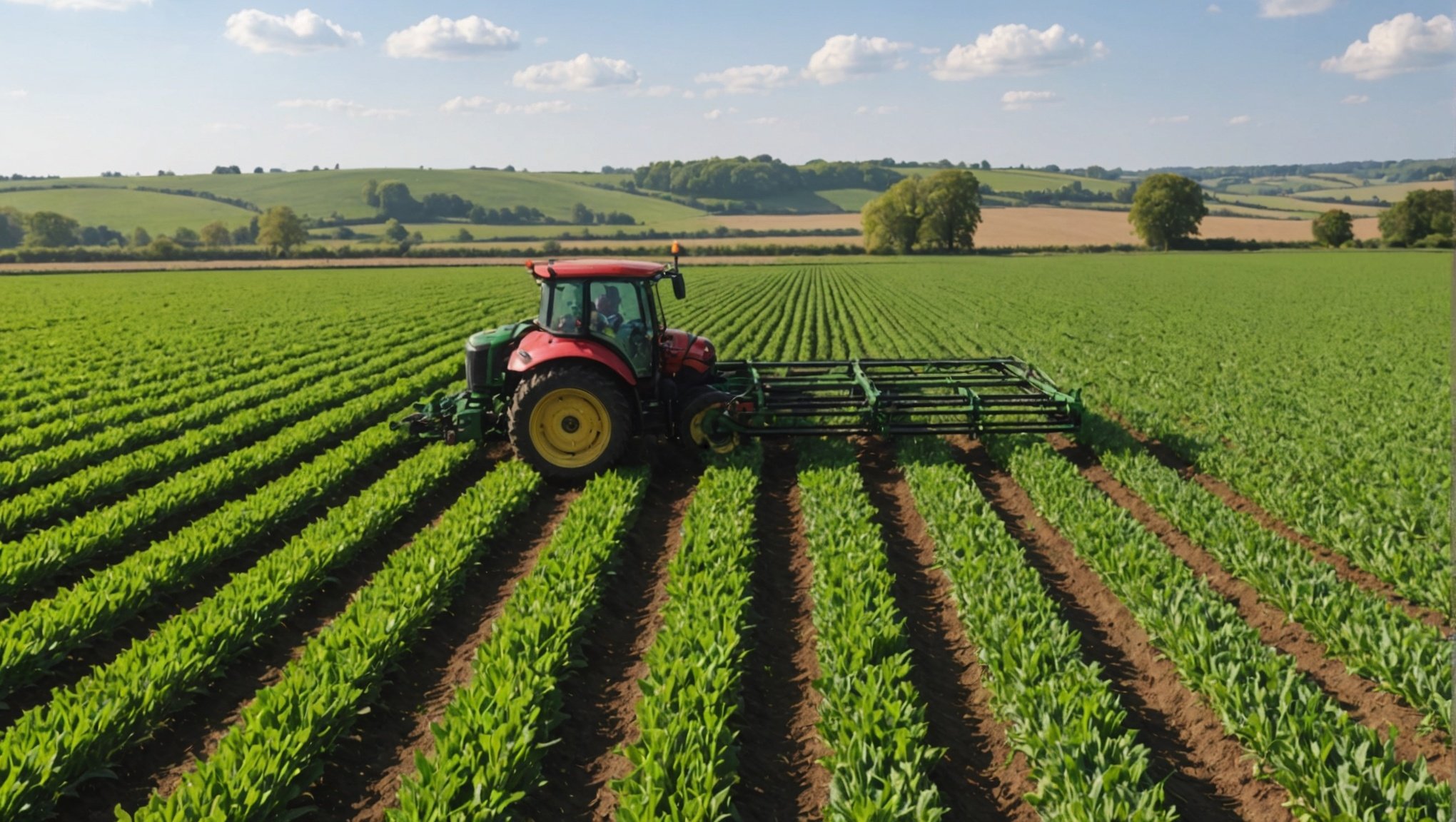Agriculture is a critical pillar of the UK’s economy, contributing billions of pounds each year. However, the industry is facing immense challenges including labor shortages, extreme weather conditions, and growing pressures to reduce carbon emissions. As such, the sector is witnessing a digital transformation, with artificial intelligence (AI) taking center stage. AI is bringing precision and efficiency to farming, promising to revolutionize the UK’s agricultural sector.
Understanding the Concept of Precision Farming
Before delving into the role of AI in precision farming, it’s crucial to understand what precision farming entails. Precision farming, or precision agriculture, is a farming management concept that uses data-driven technologies to optimize crop production. This approach enables farmers to monitor and manage their fields at a micro-level, thus enhancing efficiency and productivity.
Also to discover : What Role Does AI Play in Enhancing UK Public Transport Efficiency?
Through precision farming, farmers can understand the variabilities within their fields, allowing them to apply inputs such as water, fertilizers, and pesticides more effectively. Moreover, precision farming promotes environmental sustainability as it reduces wastage and minimizes the detrimental effects of farming on the environment.
The Role of AI in Precision Farming
Artificial Intelligence has emerged as a powerful tool in advancing precision farming. By leveraging machine learning algorithms, AI enables the analysis of vast amounts of data to inform decision-making in the farming process. This intelligent data analysis is vital in boosting productivity and enhancing sustainability in UK agriculture.
In the same genre : How Are UK Tech Startups Leveraging AI for Predictive Analytics?
AI-powered tools facilitate detailed imagery analysis, enabling farmers to monitor crop health and detect pests and diseases early enough. For instance, AI can analyze drone and satellite images to assess chlorophyll levels in plants, which is a key indicator of plant health. Early detection of issues allows for timely intervention, thus reducing losses and increasing yields.
Furthermore, AI can provide predictive analytics, forecasting weather patterns, soil conditions, and crop yields. Such predictions help farmers plan their activities better, from planting to harvesting, thus optimizing the entire farming process.
AI and Farm Management Systems
Farm management systems have become vital in the era of digital agriculture. These systems use AI to monitor, control, and automate farming operations, ensuring that each plant gets the exact care it needs.
For instance, AI-powered sensors placed in the field can collect real-time data on soil moisture, temperature, and nutrient levels. This data is then analyzed to inform irrigation and fertilization decisions. With such precision, farmers can ensure optimal growth conditions for their crops, leading to healthier plants and higher yields.
Moreover, AI can control automated machinery such as tractors and harvesters. By programming these machines to work autonomously, farmers can save time and labor, allowing them to focus on other important tasks. Consequently, AI is vital in addressing the labor challenges facing UK agriculture.
AI and Sustainability in Agriculture
Sustainability is a key concern in modern agriculture, with farmers and stakeholders striving to reduce the environmental footprint of farming activities. In this respect, AI offers significant potential in promoting sustainable farming practices.
AI can help farmers optimize the use of inputs such as water and fertilizers, ensuring that only the necessary amounts are used. This precision reduces wastage and minimizes the leaching of harmful substances into the environment. Moreover, AI can facilitate the use of renewable energy in farming, for instance, by optimizing the operation of solar-powered irrigation systems.
In addition, AI can promote the practice of precision livestock farming. Through AI-powered monitoring systems, farmers can track the health, nutrition, and behavior of their livestock, ensuring optimal care and welfare. This approach reduces the use of antibiotics, promoting healthier animals and mitigating the risk of antibiotic resistance, which is a significant global health concern.
From the above, it’s clear that AI is a game-changer in UK agriculture, enhancing precision farming and promoting sustainability. As the industry continues to embrace this technological revolution, farmers can look forward to a more productive and sustainable future. AI is indeed the key to unlocking the full potential of UK agriculture.
AI in Tackling Black Grass and Supply Chain Management
Black grass is a weed that poses a significant challenge to UK farmers. It competes with crops for resources, thus reducing crop yields. Fortunately, AI can assist farmers in identifying and controlling black grass. By analyzing images captured by drones or satellites, AI can identify areas infested by this weed, enabling farmers to take targeted action. This precision in weed control results in healthier crops and improved yields. AI’s role in this aspect underscores its significance in enhancing precision farming.
Artificial intelligence also plays a monumental role in the supply chain management of the agricultural sector. AI is instrumental in tracking, analyzing, and predicting trends in the supply chain. This data-driven insight helps farmers make informed decisions about production levels, harvesting periods, and market distribution. For instance, AI can analyze real-time market trends and consumer demands, allowing farmers to align their production with market needs.
Furthermore, AI enhances transparency in the supply chain, promoting trust among stakeholders. By digitizing the supply chain, all stakeholders: farmers, processors, retailers, and consumers, can track the journey of agricultural products from the farm to the table. This transparency is crucial in promoting responsible farming practices and ensuring food safety.
AI’s Role in Mitigating Environmental Impact and Climate Change
Farming activities contribute to carbon emissions, which accelerates climate change. However, AI can help UK agriculture reduce its environmental impact. By enabling precision farming, AI ensures optimal resource allocation, reducing wastage and carbon emissions. Besides, through predictive analytics, AI can provide farmers with insights on the best farming practices during different climate conditions, thus mitigating the effects of climate change on food production.
Furthermore, AI can enhance soil health, which is crucial in carbon sequestration. For instance, AI can analyze soil moisture and nutrient levels, enabling farmers to implement appropriate soil management practices. Healthy soils can absorb more carbon from the atmosphere, thus helping to mitigate climate change.
In conclusion, AI has become an indispensable tool in UK agriculture. It’s ushering in a new era of precision farming, characterized by high productivity, efficiency, and sustainability. From enhancing crop health and yields, tackling challenges such as black grass, transforming supply chain management, to mitigating climate change, AI is revolutionizing the UK agricultural sector. As we continue to harness AI’s full potential, we can look forward to a more resilient and sustainable agriculture sector, capable of feeding an ever-growing population while preserving the environment. Indeed, AI is the future of UK agriculture.











